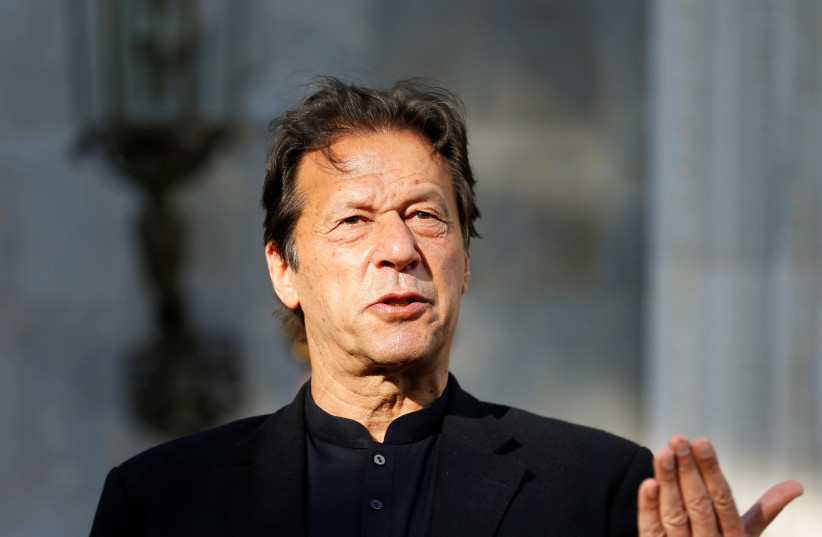Over 80 years ago, thousands of young men left the sub-continent for Europe to fight a bloody world war they had nothing to do with on behalf of the British in exchange for their freedom. Many never returned nor received the recognition for their important role in tipping the balance of war in favor of the allied powers. Their sacrifices gave the independent India and Pakistan the freedom to choose how they wanted to live and what they wanted to be in a decolonized and supposedly free world.
Entirely free or not, for the Western powers then to expect Pakistan and India to buy into their colonial era spillover wars is not only tone-deaf but a stark reminder of the colonial past that is beginning to look like a colonial present. The same colonization that our forefathers fought hard against to give our generation the ability to say no to the recurring and senseless wars based on a primitive and tribal conceptualization of our world and life.
The fact that the Western powers showed its surprise over India and Pakistan in its position on the Ukrainian crisis demonstrates the deep-rooted entitlement of these powers in viewing developing countries as without any agency. That India is an important actor in the quad group against China or that Pakistan is an important player against Islamist terrorism reliant on Western foreign aid naturally meant that these countries would tilt toward the West in its war with Russia. These underlying assumptions are so infested with the imperial mindset that it misses the fact that nations have their own national interests that they follow and that they may not share the Western philosophy on politics, wars and enemies of the West.
The way western commentators in recent days have attacked India for being weak, morally dubious and not ready to be a super power comes from that position of moral superiority that the West can school and educate other countries in how to conduct their business. With Pakistan, the Western overtones were even more derogatory, with Western academics and policy makers simply rejecting Pakistan as a rational actor that possesses the ability to make correct choices.
The question on Pakistan was not only about the poor timing of the prime minister’s visit to Moscow, but also bewilderment over Pakistan’s neutrality when it has no economic or security relations with Russia. The critical issue in this line of argument is the underlying assumption that Pakistan and India chose to ally with Russia because it did not ally with the West.

This black and white configuration of a complex conflict reduces the world into a good vs. evil, right vs. wrong, us vs. them moral and emotional tropes – a typical imperial practice to force the world into camps, thereby reducing the role of politics and diplomacy to pave the way for global wars against that “all other evil”. This very intellectualization of creating evils out of those that you don’t understand or agree with is what gives impetus to the forever recurring western wars in the modern world.
At the core of this entire fissure is the development and evolution of the Western philosophy that runs in stark contrast to the Eastern philosophy present in South Asia and China. For instance, the West may have advanced scientifically but its advancements are barren of metaphysics, spirituality, compassion and imagination, believing in only what the experimental lab results and incomplete data may suggest – and worse, acting on it. However, the East advanced in the experiential domain, developing deeper insights into the reality of things and knowledge, answering the most existential questions of humanity, while believing in the idea of remaining still in the cosmic flow of nature.
When translated into politics and war, these two worlds speak an entirely different language. The West, despite its advancement, continues to be driven by tribal instincts of otherization, greed and obsession with zero-sum game. The East, despite its much contamination due to colonialization is still very political and negotiable, trusting in peace and war only as a last resort.
Nowhere is this more prominent than how Pakistan bargained with the US on Afghanistan for 20 long years, despite being labeled as a terror sponsor and for playing a double game. Pakistan’s greatest success in the Afghan war was to bring the US into a peace agreement with the Taliban, recognizing that there was no military solution to the war, which the US took years to recognize.
What this essentially means is that the West may undoubtedly be fully capable of fighting wars but is untrained in achieving peace. This also means that the inherent lens that the West wears to construct the world and nature around us is a primitive 16th century Hobbesian framework that in many ways is redundant today. Hence, there is a reason why there will continue to be friction between these two civilizations in how they see the world, conduct their practices and what they aim to be.
Unless the West does not evolve out of its colonial era zero-sum world view, it will find it increasingly hard to negotiate and bargain in a new world now co-dominated by powers that have a very different and refined understanding of life, politics and war. Consequently, neutrality is really just commonsense.
The writer is executive director of Islamabad Policy Research Institute (IPRI), based in Islamabad. He has a PhD from the University of Sydney, MPhil from University of Cambridge and a BA in International Affairs from George Washington University.
